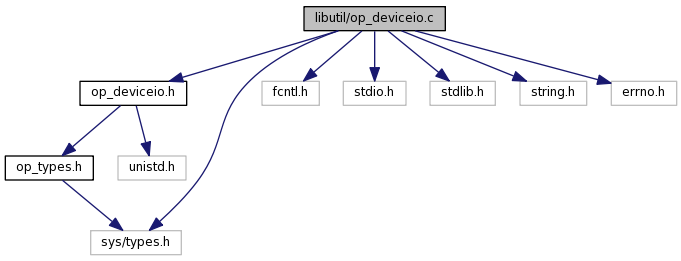op_deviceio.c File Reference
#include "op_deviceio.h"#include <sys/types.h>#include <fcntl.h>#include <stdio.h>#include <stdlib.h>#include <string.h>#include <errno.h>
Go to the source code of this file.
Functions | |
| fd_t | op_open_device (char const *name) |
| ssize_t | op_read_device (fd_t devfd, void *buf, size_t size) |
Detailed Description
Reading from a special device
- Remarks:
- Copyright 2002 OProfile authors
- Read the file COPYING
Definition in file op_deviceio.c.
Function Documentation
| fd_t op_open_device | ( | char const * | name | ) |
op_open_device - open a special char device for reading
- Parameters:
-
name file name of device file
Open the special file name. Returns the file descriptor for the file or -1 on error.
Definition at line 22 of file op_deviceio.c.
Referenced by op_open_files(), and opd_open_files().

| ssize_t op_read_device | ( | fd_t | devfd, | |
| void * | buf, | |||
| size_t | size | |||
| ) |
op_read_device - read from a special char device
- Parameters:
-
devfd file descriptor of device buf buffer size size of buffer
Read size bytes from a device into buffer buf. A seek to the start of the device file is done first then a read is requested in one go of size bytes.
It is the caller's responsibility to do further op_read_device() calls if the number of bytes read is not what is requested (where this is applicable).
The number of bytes read is returned, or a negative number on failure (in which case errno will be set). If the call is interrupted, then errno will be EINTR, and the client should arrange for re-starting the read if necessary.
Definition at line 28 of file op_deviceio.c.
Referenced by opd_do_read(), and opd_shutdown().

 1.6.1
1.6.1